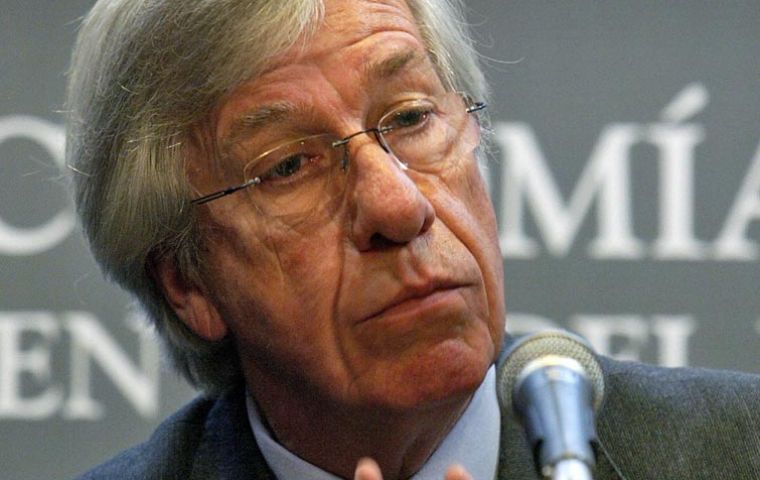MercoPress. South Atlantic News Agency
Uruguay’s March inflation soars 1.42% and 3.6% in the first quarter
 Vice-president Danilo Astori is confident the situation is under control
Vice-president Danilo Astori is confident the situation is under control Uruguay consumer prices soared 1.42% in March, reaching 8.17% in the last twelve months and 3.6% in the first quarter, which is dangerously close to the twelve month government target of 3% to 7%, which theoretically should go down to 4% to 6% next June.
The items with the greatest incidence were Food and Beverage, 1.7% (particularly beef, 6%); fuel 8.47%; urban transport, 6.72%; housing, 2%; utility rates: power, 3.12%, gas, 9.45% and municipal taxes, 5.46%.
March 2011 recorded the highest inflation since March 1996.
In spite of the yellow light, Vice-President Danilo Astori said there “are no reasons for alarm” and promised that the government would be ‘pro-active’ in the close monitoring of prices, particularly for food and utilities.
President Jose Mujica said he was concerned because of the reduced acreage of potatoes which he anticipated would have an impact on the “food basket”.
So far this year the Uruguayan central bank has hiked the basic interest rate from 6.5% to 7.5% and has delayed a programmed fuel prices increase for this month.
Economy minister Fernando Lorenzo said inflation has been a priority of the government from day one and “will continue to be”. He revealed a three- fronts action to combat prices increase: monetary, fiscal and salaries. The first was the Central bank’s decision to increase 100 points the basic rate; fiscal policy will be addressed with ‘rigour and prudence’ while the salaries round has remained according to the announced targets.
Nevertheless Lorenzo anticipated that if the accumulated last 12 month inflation approached 10%, “we will meet with the government employees union to discuss the issue”. Under a labour contract agreement as long as annual inflation remains below 10%, there’s an only annual adjustment. If not, new mechanisms with quicker updates are to be implemented.
However private analysts are not sure and estimate that in the next quarter the accumulated inflation could reach 10% or even higher but should end 2011 below the crucial 10%.
But this scenario could change drastically if Uruguay is exposed to an additional foreign shock (oil, interest rates or even climate change with a direct incidence on food prices).
All private consultants coincide that Uruguay will have to follow the path of Brazil and Chile that have moderated government expenditure or made significant cuts to the budgets.
“Basically they will have to attack the budget, keep increasing interest rates and allowing local currencies to further appreciate against the US dollar”, said economist Francisco Gomez. “Signals from the labour front should be conservative, although with an almost full employment scenario it won’t be easy”.
On Monday it was revealed that Uruguay’s oil and gas government monopoly Ancap was reimbursed VAT on investment and maintenance operations as part of the Treasury effort to keep fuel prices stabilized. Uruguay as a net importer of fuel is totally exposed to the volatility of the international oil price.




Top Comments
Disclaimer & comment rulesCommenting for this story is now closed.
If you have a Facebook account, become a fan and comment on our Facebook Page!